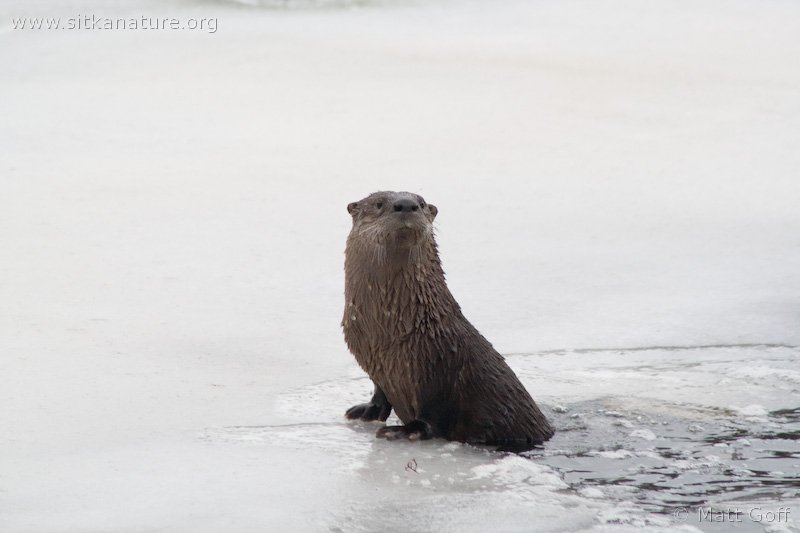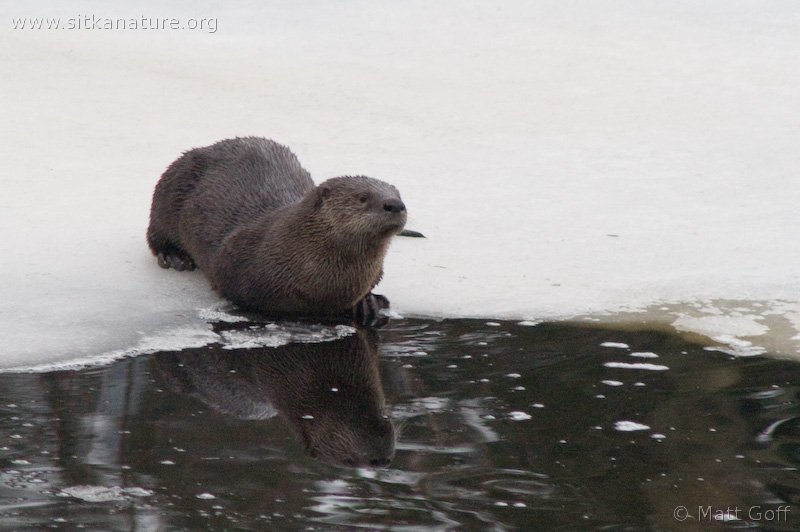A couple of weeks ago, I was riding by Swan Lake in the afternoon and happened to notice a River Otter (Lontra canadensis) resting on the ice beside a hole near the open water at the outlet. I stopped and took several photos as it went in and out of the water, swimming under the ice between openings.
At the time I wondered about its presence there. The roads surrounding Swan Lake are fairly busy, and the outlet stream is culverted from the lake to the ocean. It seems most likely that the otter travelled over land, but it is unclear to me which route it would be most likely to take. There’s a route that is mostly forested between the water and the lake, utilizing the old Russian Cemetary, which seems like a good candidate. It also seems plausible that it followed Wrinkleneck Creek (the primary inlet stream), which flows through wooded and quiet residential areas.
The following day, I talked to long-time local resident Kent Hanson who has been living near the lake for maybe 40 years. He mentioned seeing the otter near the open water at the inlet the previous morning. He described it remaining still and partially submerged at the edge of the ice, and thought it was probably hanging out to catch a bird to eat. Apparently otters are not all that unusual around the lake. He mentioned seeing them on previous occasions (sometimes more than one at a time), and observing where they had consumed birds they caught, apparently not bothering to pluck the birds before eating.


Matt,
What is the difference between a land otter and a river otter? I spent an hour watching, what I thought was a land otter up on Sawmill Creek. It was sunning itself and didn’t seem to care that I was so close.
Jon
River Otter and Land Otter are both used to refer to the same thing. It may be that in different parts of the world there’s more distinction to be made, but I’m pretty sure that in North America, there’s only one species. Certainly in Sitka, there is just the one species.